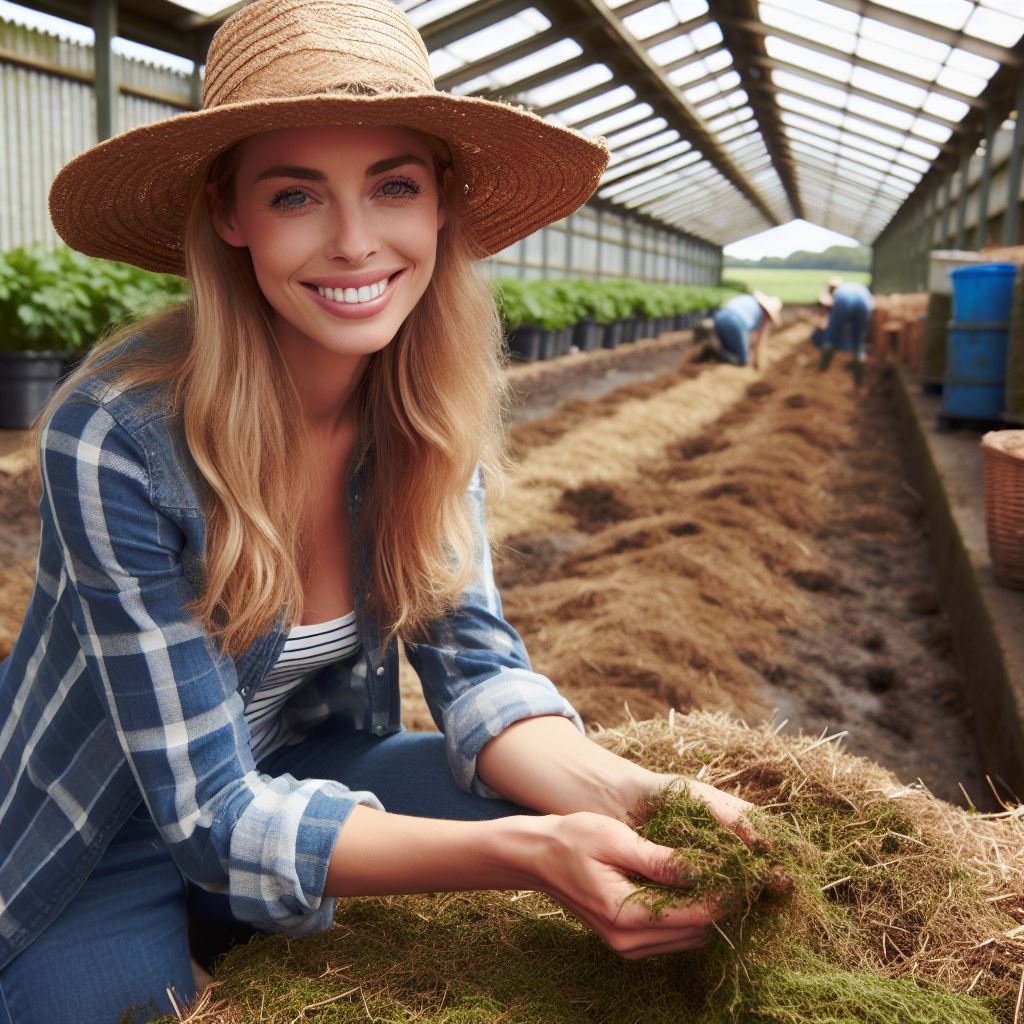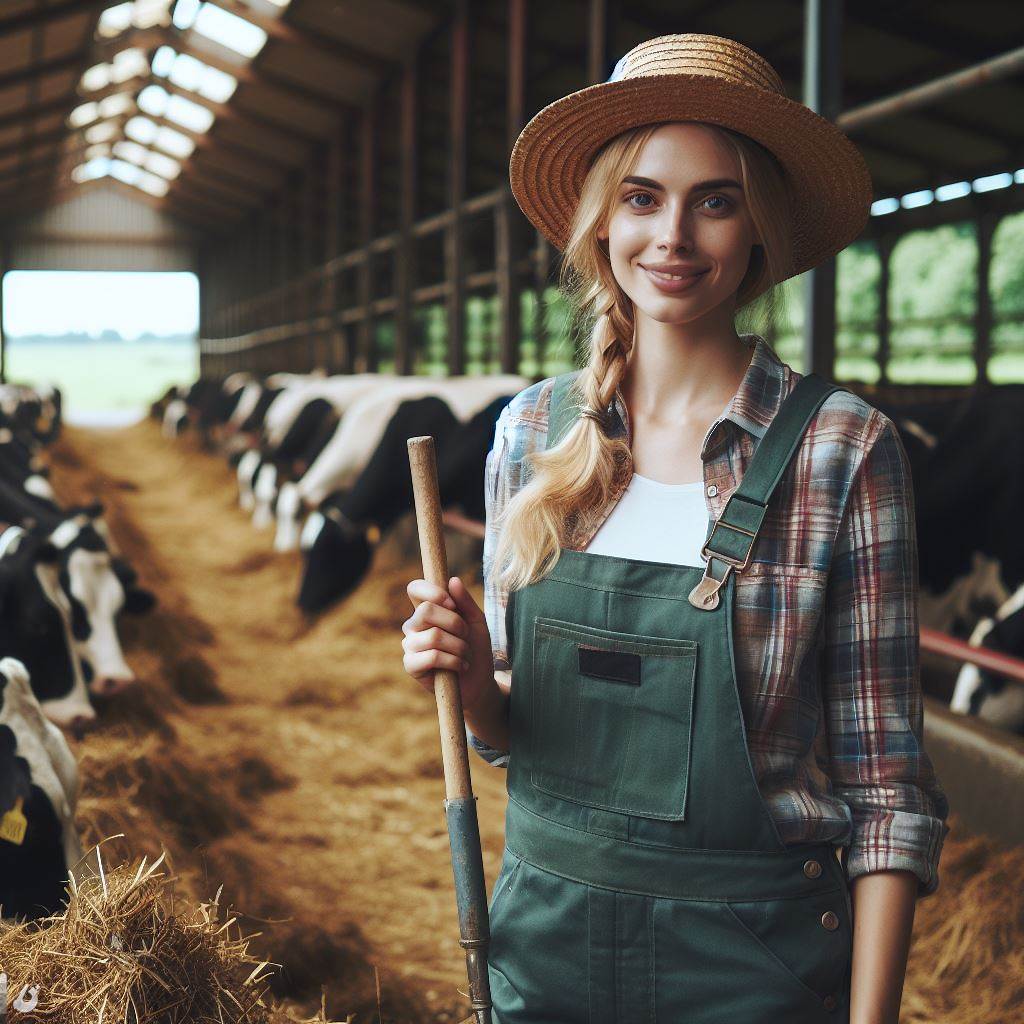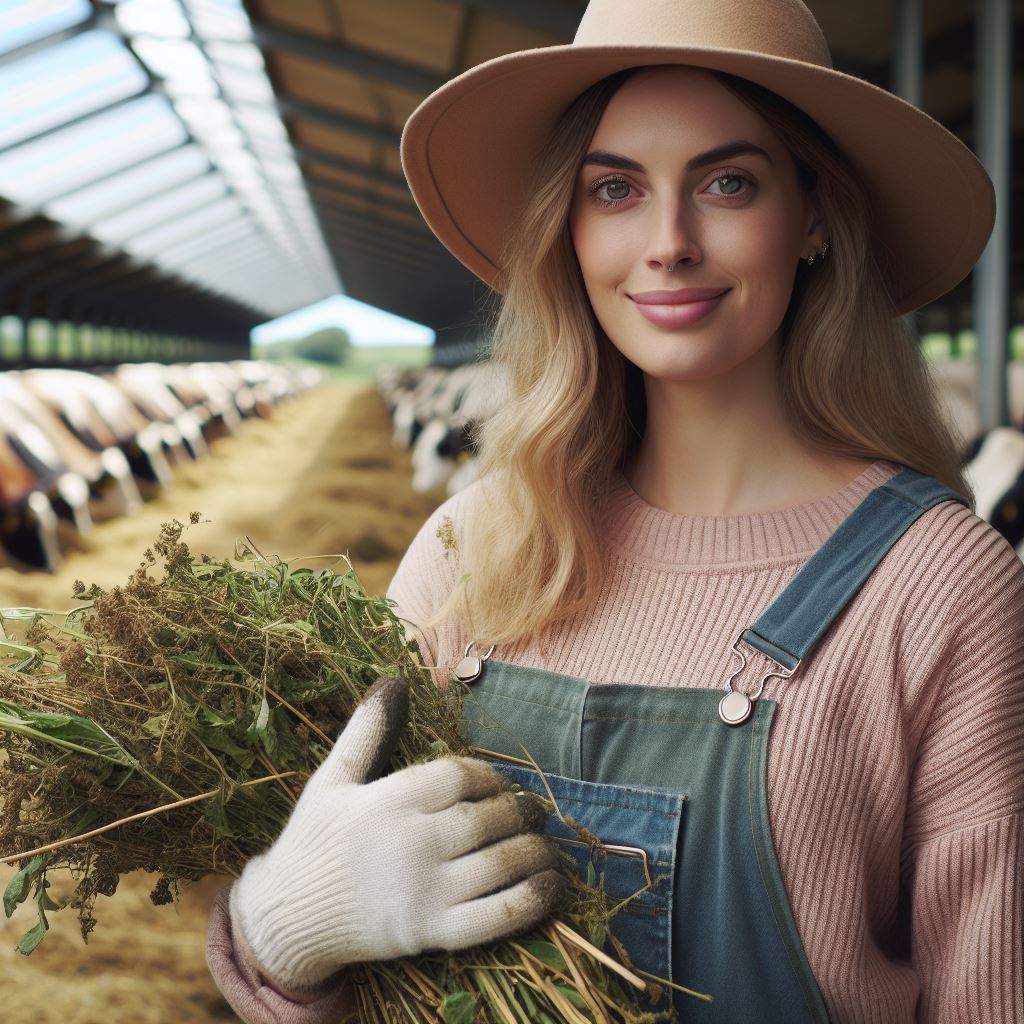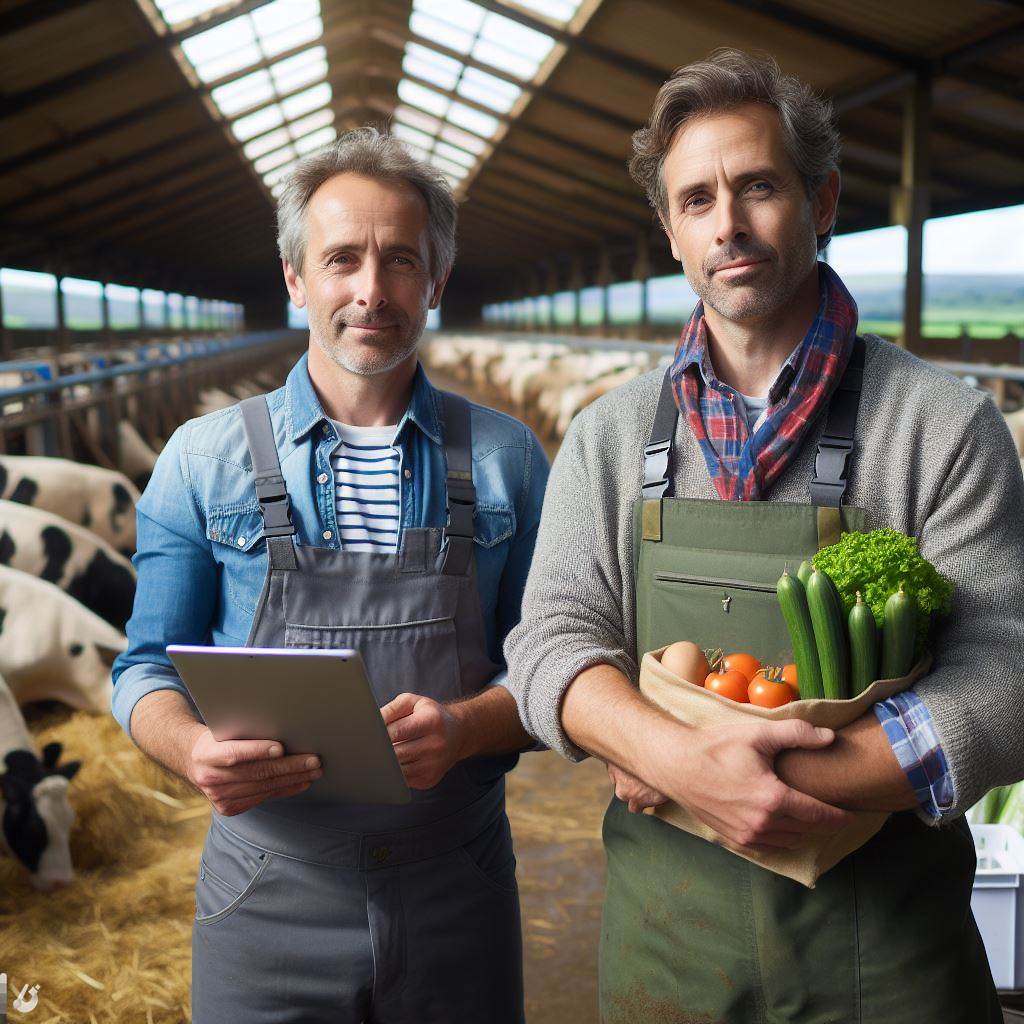Introduction
Embarking on the journey into farming education in the United Kingdom unveils a realm of significance.
Where the cultivation of knowledge becomes the bedrock for fostering skilled professionals in the ever-evolving agriculture sector.
As the agricultural landscape undergoes dynamic transformations, the demand for well-trained individuals is reaching unprecedented heights.
The call for expertise in sustainable farming practices, technological integration.
And agribusiness management is reshaping the industry, creating exciting opportunities for those equipped with the right knowledge and skills.
This blog post stands as a beacon, offering a comprehensive guide for individuals eager to explore the vast field of farming education.
Beyond mere information, we delve into a spectrum of farming education courses and elucidate the diverse career opportunities available in the United Kingdom.
Join us as we navigate this educational landscape, empowering you with insights to make informed decisions and chart a rewarding path in the thriving domain of agriculture.
Types of Farming Education Courses
Diploma Programs
Diploma programs in farming education provide practical knowledge on essential farming techniques and skills.
Royal Agricultural University
The Royal Agricultural University offers a diploma program in Agriculture, teaching students about crop production and animal management.
Reaseheath College
Reaseheath College offers a diploma program in Agriculture, covering topics like machinery operation and soil science.
Bachelor’s Degrees
Bachelor’s degrees in farming education offer comprehensive theoretical and practical knowledge in agricultural science.
Harper Adams University
Harper Adams University offers a bachelor’s degree in agriculture with various specializations, such as animal production and crop management.
Newcastle University
Newcastle University provides a bachelor’s degree in agriculture and Agronomy, focusing on sustainable farming practices and crop improvement.
Specialized Courses
Specialized farming courses focus on specific areas of agriculture, allowing students to develop expertise in niche fields.
Plumpton College
Plumpton College offers a specialized course in Viticulture, focusing on growing grapes and wine production techniques.
Royal Horticultural Society
The Royal Horticultural Society provides specialized courses in Horticulture, covering topics like plant propagation and garden design.
Importance of Practical Training and Field Experience
Practical training and field experience are vital aspects of farming education as they allow students to gain hands-on skills and knowledge.
Application of Theory
Practical training bridges the gap between theory and real-world applications, enabling students to apply agricultural principles in practical scenarios.
Skill Development
Hands-on training helps students develop essential farming skills, such as machinery operation, livestock management, and crop cultivation techniques.
Problem-Solving Abilities
Field experience exposes students to various challenges in farming, enhancing their problem-solving abilities and critical thinking skills.
Industry Connections
Practical training often takes place on farms, providing students with opportunities to network with industry professionals and potentially find job placements.
Personalized UK Career Consulting
Receive tailored career guidance designed just for you. Get actionable steps and expert support to boost your career in 1-3 days. Take control of your career now.
Get StartedUnderstanding Agricultural Practices
Field experience allows students to understand the daily workings of a farm, including crop rotation, pest control, and livestock health management.
In essence, there are various types of farming education courses available in the UK, including diploma programs, bachelor’s degrees, and specialized courses.
Institutions like the Royal Agricultural University and Harper Adams University offer comprehensive courses in agriculture.
Practical training and field experience play a crucial role in shaping students’ knowledge and skills in farming, bridging the gap between theory and real-world applications.
These experiences also help develop problem-solving abilities and industry connections, crucial for a successful career in the agricultural industry.
Read: Aquaculture Tech: Skills You Need in the UK
Areas of Specialization
In the field of farming education, there are various areas of specialization that students can choose from.
These specializations allow individuals to focus on specific aspects of farming and develop expertise in a particular area.
Crop Production
One area of specialization within farming education is crop production. Courses in this field focus on cultivating and producing different types of crops.
Students learn about soil management, planting techniques, pest control, and harvesting methods.
Specializing in crop production can lead to various career opportunities such as becoming a crop consultant, agronomist, or farm manager.
Livestock Farming
Another specialization option is livestock farming. This area of focus concentrates on the breeding, rearing, and management of farm animals.
Students learn about animal nutrition, breeding techniques, housing systems, and health management.
Upon specialization in livestock farming, individuals can pursue careers as livestock farmers, animal nutritionists, or veterinary technicians.
Your Dream Job Starts with a Perfect CV
Get a tailored CV and cover letter that captures your unique strengths and stands out in your industry. Let us help you make an unforgettable first impression.
Get StartedOrganic Farming
Organic farming is a popular specialization choice for individuals interested in sustainable and environmentally friendly agricultural practices.
This specialization emphasizes the use of natural methods in crop production and livestock rearing.
Students learn about organic pest control, composting, soil fertility management, and organic certification processes.
Graduates with expertise in organic farming can work as organic farm managers, organic inspectors, or organic food processors.
Agribusiness Management
For those interested in the business side of farming, specializing in agribusiness management is a great option.
This specialization focuses on the economic and managerial aspects of agricultural enterprises.
Students learn about farm business planning, marketing strategies, financial management, and supply chain logistics.
With a specialization in agribusiness management, individuals can pursue careers as agricultural economists, farm business consultants, or agricultural marketing managers.
The benefits of specializing in a specific area of farming
Specializing in a specific area of farming has several benefits.
It allows individuals to gain in-depth knowledge and skills in their chosen field, making them highly sought after by employers.
Specialization also provides a competitive advantage, as it distinguishes individuals from others in the industry.
Career prospects and industries related to each specialization
Moreover, specializing in a particular area of farming opens up a wide range of career prospects.
Depending on their specialization, individuals can find employment in various industries related to their field of expertise.
Crop production specialists can work in agricultural research institutions, seed companies, or food processing companies.
Livestock farming specialists can find opportunities in livestock production companies or animal health organizations.
Optimize Your LinkedIn for Success
Boost your LinkedIn profile with a professional bio, keyword-rich headline, and strategic recommendations that attract recruiters. Stand out from the crowd and get noticed.
Optimize NowOrganic farming specialists can establish their own organic farms or work in organic certification bodies.
Agribusiness management specialists can work in agricultural cooperatives, supply chain companies, or agribusiness consulting firms.
In fact, farming education offers multiple areas of specialization, each with its unique set of courses and career prospects.
Students specializing in crop production, livestock farming, organic farming, or agribusiness management can cultivate expertise for rewarding careers in agriculture.
Read: Farm to Table: UK Farming’s Role in Food Supply

Career Opportunities in Farming
The farming sector offers a wide range of career opportunities for individuals interested in working with nature and ensuring food security.
With the increasing demand for sustainable agricultural practices and the need for skilled professionals in various fields, there has never been a better time to consider a career in farming.
Career opportunities available in the farming sector
One career path that has been gaining popularity is agricultural management.
As farms become larger and more complex, there is a growing demand for individuals who can oversee operations and ensure the efficient use of resources.
Agricultural managers play a vital role in managing finances, implementing new technologies, and making strategic decisions to maximize productivity.
Increasing demand for skilled individuals in agricultural management
Another area where skilled individuals are in high demand is farm consultancy. Farms often require expert advice on various aspects, such as crop rotation, pest control, and soil management.
Farm consultants offer their expertise to help farmers optimize their practices and achieve sustainable and profitable outcomes.
In addition to agricultural management and consultancy, there are also opportunities in agricultural research.
As the industry faces challenges such as climate change and a growing global population, research is essential to develop innovative solutions.
Careers in agricultural research include roles in genetics, crop improvement, sustainable farming systems, and animal science.
Farm administration, agricultural sales, and farm equipment maintenance
For those interested in the administrative side of farming, there are career possibilities in farm administration.
Farm administrators handle tasks such as financial management, record-keeping, and compliance with regulations.
They ensure the smooth operation of the farm, allowing farmers to focus on production and other key areas.
Another area with career potential is agricultural sales. Companies that provide farming inputs like seeds, fertilizers, and machinery require sales professionals to promote their products.
Agricultural sales representatives build relationships with farmers, provide product recommendations, and ensure customer satisfaction.
Farm equipment maintenance is another area that offers career prospects. Farms rely on a wide range of machinery, from tractors to irrigation systems.
Skilled technicians are needed to maintain and repair this equipment, ensuring that it operates at its best and minimizing downtime during critical farming seasons.
Starting one’s own farming business
Lastly, for those with an entrepreneurial spirit, starting your own farming business is an option.
With the right knowledge and skills, individuals can establish their own farms and be in control of their agricultural practices.
Starting a farming business allows for creativity, independence, and the potential to contribute to the local food system.
Basically, the farming sector offers a diverse range of career opportunities.
From agricultural management and consultancy to research, administration, sales, equipment maintenance, and entrepreneurship, there is a path for individuals with various interests and skills.
With the increasing demand for skilled professionals in the industry, pursuing a career in farming can be both personally fulfilling and contribute to the future of food production.
Read: Agri-Tech Innovations in UK Farming Explained
Discover More: UK Agri-Management: Education & Career Path
Importance of Continued Professional Development
The importance of continuous learning and professional development
In the dynamic landscape of UK farming, recognizing the pivotal role of continued professional development is paramount.
Active engagement in continuous learning becomes the cornerstone for agricultural professionals seeking to thrive in an ever-evolving industry.
The availability of short courses and workshops
Short courses and workshops present invaluable opportunities for skill enhancement. Professionals can delve into specialized areas, from precision farming techniques to sustainable practices.
These concise learning modules empower individuals to adapt swiftly to industry shifts, fostering a resilient workforce.
The relevance of staying updated with technological advancements in farming
Staying attuned to technological advancements is a non-negotiable aspect of modern farming.
Continuous education ensures that professionals are equipped with the latest tools and methodologies, optimizing efficiency and output.
Embracing innovation becomes not just a choice but a necessity for those aspiring to excel in their agricultural careers.
Establishing strong professional ties is crucial for career growth. Joining agricultural groups fosters knowledge exchange, collaboration, and industry trend awareness.
The collective strength of such networks amplifies the impact of individual efforts.
The benefits of joining professional agricultural associations and networks
The benefits of continuous professional development extend beyond individual growth to the overall health of the agricultural sector.
A workforce committed to ongoing learning contributes to the industry’s resilience, adaptability, and sustainability.
In essential, the importance of continued professional development in UK farming cannot be overstated.
It is a linchpin for personal and collective success, ensuring that professionals are not just keeping pace with the industry but leading it towards a more sustainable and innovative future.
Read: Women in UK Farming: Challenges and Triumphs
Conclusion
Farming education in the UK offers numerous courses and exciting career prospects.
By summarizing the key points discussed in this blog post, it becomes clear that farming education plays a significant role in training individuals to become skilled professionals in the agricultural sector.
Through diverse range of farming education courses, individuals can acquire the necessary knowledge and skills to contribute to sustainable and efficient farming practices.
Whether it’s pursuing a degree in agriculture or attending specialized courses, there is something for everyone interested in this field.
It is essential to recognize the importance of farming education in meeting the growing demands of the agricultural industry, ensuring food security, and promoting sustainable farming practices.
If you are considering a career in the agricultural sector, I encourage you to explore the diverse range of farming education courses available.
These courses will equip you with the expertise and confidence to make a meaningful impact in the field.
If you would like further information or have specific inquiries, please reach out to the relevant agricultural educational institutions or refer to the resources listed below:
- UK Department for Environment, Food and Rural Affairs: www.gov.uk/defra
- British Farming Education Association: www.bfea.org.uk
- British Agricultural Colleges and Universities: www.uksca.org.uk
Embark on an exciting journey in farming education and be part of the future of sustainable agriculture in the UK!
[E-Book for Sale]
500 Cutting-Edge Tech Startup Ideas for 2024 & 2025: Innovate, Create, Dominate
$19.99 • 500 Tech Startup Ideas • 62 pages
You will get inspired with 500 innovative tech startup ideas for 2024 and 2025, complete with concise descriptions to help you kickstart your entrepreneurial journey in AI, Blockchain, IoT, Fintech, and AR/VR.




